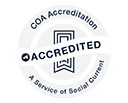Foster Care
Governor JB Pritzker proclaims May 2025 Foster Parent Appreciation Month
Every year, thousands of foster families across Illinois provide a temporary safe haven for children who have been placed in DCFS care by local courts. DCFS strives to reunite children with their birth families, and nearly half of all foster children are reunified with their families within 12 months. When reunification simply is not possible, as determined by the courts, many foster families choose to adopt the children they have cared for.
How do you become a foster family?
Foster families come from all walks of life and are needed all across Illinois. Foster parents must be at least 21 years old and can be married, in a civil union, single, divorced or separated.
To ensure your success as a foster parent, prospective foster families are required to:
- Participate in a home inspection and social assessment.
- Complete 27 hours of training focused on foster care and the needs of children who are in foster care.
- Complete a criminal background check of all household members.
Be financially stable. - Complete a health screening that includes verification that immunizations are up to date.
DCFS maintains an online listing with pictures and descriptions of children in need of a loving family. View the Heart Gallery.
Learn more about foster care:
- Video in American Sign Language: Foster Care Recruitment
- *NEW for 2025 - Foster their Future card: English Spanish Polish
- Top 10 things you need to know about becoming a foster parent information card: English Spanish
- You can make a difference in the life of a child in your community: be a foster parent! brochure: English Spanish Polish
- What you need to know about being a relative caregiver brochure: English Spanish Polish
- Foster Parents Rights and Responsibilities brochure: English Spanish Polish
- Fill out the online interest form and a foster/adoptive parent recruiter will contact you with more information and next steps.
The KIND Act and Relative Caregiver Certification
Governor JB Pritzker signed the Kinship in Demand (KIND) Act into law on February 5, 2025. The law, developed through a partnership between Illinois DCFS and the ACLU of Illinois, took effect July 1, giving Illinois the ability to create separate standards for relatives to be certified to care for related children and youth in DCFS care. Learn more about what the KIND Act means for families, relative caregiver certification and resources for relative caregivers.
DCFS exit interviews for youth in care (FARE)
To ensure that all Illinois youth in care have their voices heard and their experiences considered and documented, the Illinois House of Representatives passed House Bill 4304, known as the Foster Care Assessment and Rating at Exit (FARE) interview, that became effective on January 1, 2023 and the department began implementing on August 14, 2023. This mandate requires that all children 5 years and older who exit a foster home complete an exit interview about their experiences. The interview is to take place with a qualified DCFS designee in a private setting outside the home they are leaving. Learn more by reading the FARE Overview for Foster Parents.


 312-814-6800
312-814-6800